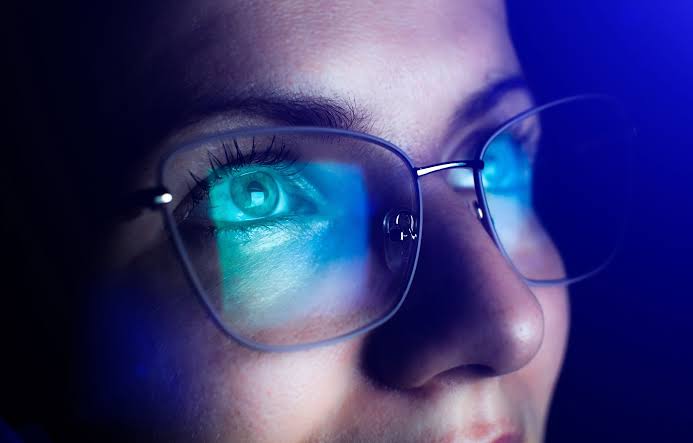In today’s world, screens are unavoidable. Whether it’s working on a laptop, scrolling through a smartphone, or relaxing with a favorite TV show, digital devices have become an essential part of modern living. While technology offers convenience, it also brings challenges—particularly the effects of prolonged exposure to blue light. Many people experience headaches, eye strain, and disrupted sleep due to the time they spend in front of screens. This is where blue light blocking glasses come into play, offering a simple yet effective solution for protecting your eyes and improving overall well-being.
Understanding Blue Light
Blue light is a part of the visible light spectrum with short wavelengths and high energy. While the sun is the biggest natural source of blue light, digital devices emit it as well. Unlike other types of light, blue light penetrates deeply into the eye, reaching the retina. Studies have shown that excessive exposure to artificial blue light can lead to discomfort and long-term vision concerns.
One of the main issues with blue light is its link to digital eye strain. Symptoms include dryness, blurred vision, and difficulty focusing after extended screen use. Additionally, blue light has been found to suppress melatonin, the hormone responsible for regulating sleep. This means late-night scrolling or working on a laptop can interfere with your ability to fall asleep and stay asleep.
Benefits of Blue Light Blocking Glasses
Wearing glasses designed to filter blue light has become increasingly popular among professionals, students, and gamers. Here are some of the primary benefits:
1. Reduced Eye Strain
By blocking or filtering out a portion of the blue light emitted from screens, these glasses help reduce digital eye strain. This can lead to more comfortable screen use, fewer headaches, and less overall fatigue.
2. Improved Sleep Patterns
If you spend your evenings working or using electronic devices, blocking blue light can make it easier to maintain natural sleep cycles. Users often report falling asleep more quickly and enjoying deeper, more restful sleep.
3. Enhanced Productivity
When your eyes feel less tired, it becomes easier to stay focused and productive. Many professionals find that wearing these glasses during the workday helps them sustain concentration for longer periods.
4. Long-Term Eye Health
Although research is ongoing, some experts believe that reducing blue light exposure may help prevent potential long-term issues associated with retinal damage. Taking proactive steps now could support healthier vision in the future.
Who Should Use Them?
The truth is, nearly everyone can benefit from blue light filtering lenses. Office workers who spend eight or more hours at a computer, students studying online, or gamers logging long sessions all expose their eyes to significant amounts of blue light. Even people who casually use devices for browsing or entertainment may find relief by incorporating these glasses into their routine.
For children and teenagers, who often use tablets and phones for both school and play, reducing blue light exposure is especially important. Young eyes are more sensitive, and early habits can have lasting impacts.
Choosing the Right Pair
When selecting glasses, it’s essential to consider both functionality and style. Look for lenses that effectively filter blue light without distorting colors too much. Comfort is also key, especially if you plan to wear them for long stretches of time. Lightweight frames and modern designs ensure that they don’t just protect your eyes but also complement your personal look.
Another factor to consider is whether you need prescription lenses. Many manufacturers offer options that combine vision correction with blue light protection, so you don’t have to compromise. Even those without vision problems may opt for non-prescription lenses to gain the protective benefits.
Everyday Integration
Incorporating these glasses into your daily life is simple. Keep a pair at your work desk, in your study space, or near your gaming setup. Wearing them consistently, especially during the hours you spend in front of screens, helps maximize their effectiveness.
It’s also smart to combine glasses with other healthy screen habits. Following the 20-20-20 rule—every 20 minutes, look at something 20 feet away for at least 20 seconds—can further reduce eye strain. Adjusting screen brightness, using night mode features, and ensuring proper lighting in your workspace also support eye comfort.
Final Thoughts
Screens are here to stay, but that doesn’t mean discomfort and sleepless nights have to be part of the package. By understanding the effects of blue light and taking proactive steps to minimize its impact, you can protect your vision and improve your overall quality of life. A good pair of blue light blocking glasses can make all the difference, helping you stay productive during the day and well-rested at night.

